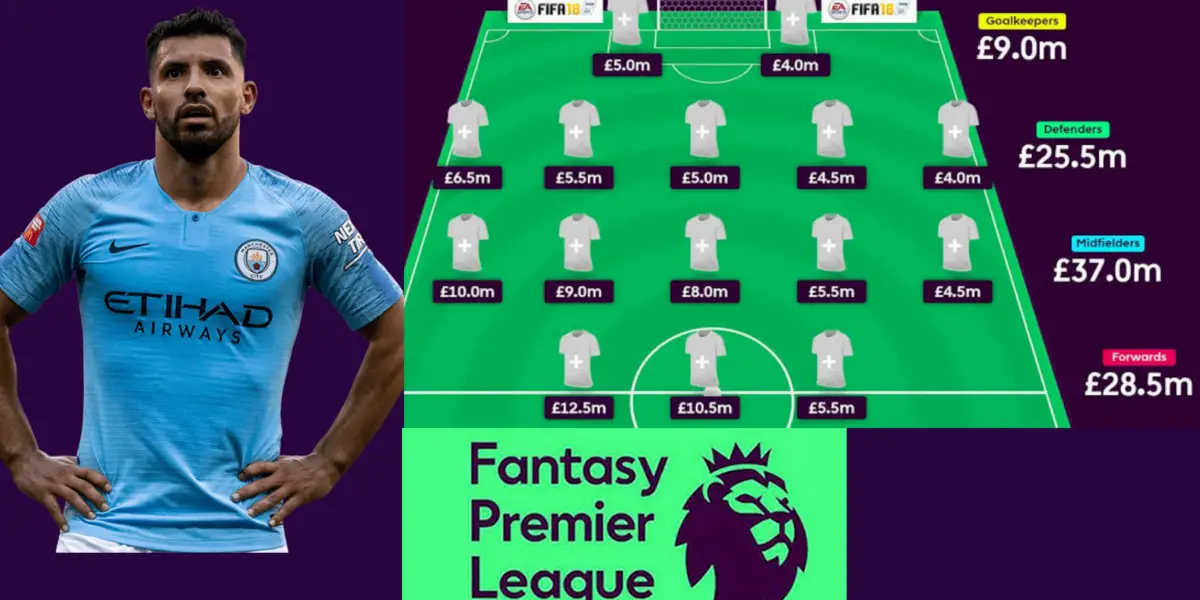If you’re reading this piece, chances are you have already heard about the FPL (Fantasy Premier League). But maybe you haven’t!
A record-breaking 7.7 million people are involved in the 2020/2021 Fantasy Premier League season and the number is set to increase further as awareness grows regarding the league.
Here’s a concise breakdown of all you need to know about this Fantasy League that has got English Premier League fans simulating management in exciting ways:
Create a profile
First, go to their official page and create a profile, give your team a name then build your squad.
Building your squad
FPL managers are provided with a budget of £100.0m which will be spent on a squad of 15 players only.
A first eleven (11) and four (4) substitutes.
You can pick a maximum of three players from the same Premier League club.
Team Set-up/management
Managers must only select their squad in the pattern below:
- 2 goalkeepers.
- 5 defenders (selections can consist of fullbacks or centre-backs entirely, anything goes)
- 5 midfielders (selections can consist of wingers, central or defensive midfielders entirely)
- 3 strikers.
The preferred selection of the first eleven players must be decided upon before each game week deadline. Usually ninety minutes before the kick-off time of the first match of the game week.
The range of formations that can be deployed is limited to 3-5-2, 3-4-3, 4-5-1, 4-4-2, 4-3-3, 5-4-1, 5-3-2, 5-2-3.
At each point, a formation must contain at least:
- 1 goalkeeper
- 3 defenders
- 2 midfielders
- 1 striker
It is important to note that the order in which your substitutes are listed will determine the order in which ‘automatic substitutions’ can occur. This is so especially when there is a case of injuries to players in your first eleven while a game week is still ongoing.
Read Also: Best Football Apps For Android & IOS
Automatic substitutions also occur when a player in your first eleven does not get to play in the actual fixture despite being fit.
A very important part to selecting the team is to make the choice of captain and vice-captain.
Your captain scores double on all points accrued – as will be explained in the subsequent paragraphs.
Read Also: Best Premier League Midfielders of All Time
FPL points scoring pattern
The FPL allocates points to players in your team based entirely on how they perform in real life:
- Goals scored (Defender/Goalkeeper) – 6 points
- Goal scored (Midfielder) – 5 points
- Goals scored (Attacker) – 4 points
- Assist – 3 points
- Clean sheet (Defender/Goalkeeper) – 4 points
- Clean sheet (Midfielder) – 1 point
- Yellow card – (-1) point
- Red card – (-3) points
- Own goal – (-2) points
- Penalty miss – (-2) points
- The penalty save (Goalkeeper) – 5 points
- After 3 shots saved (Goalkeeper) – 1 point
- After 2 goals conceded – (-2) points
- Playing less than 60 minutes – 1 point
- Playing 60 minutes or more – 2 points
- Captain – Double the usual points
- Bonus points based on performance during the game (for the top 3 rated players) – 3, 2, and 1 point.
Consider Reading: The Best Female Soccer Commentators
FPL Chips
The Fantasy Premier League chips are performance enhancement options given to managers in order to spice up proceedings.
The decision on how and when to use these chips can be the difference between a very highly-rated manager and a poor one.
- Wildcard… This chip is given twice in the season, one at the start of the league and another by January 1 (at which point the first wildcard chip is also lost/expired). The wildcard chip allows a manager to change their entire squad without any ‘points loss’.
- Bench Boost… This chip enables the players on your bench to add scores to your total for a precise game week only.
- Free Hit… With this chip, just like the wildcard chip, changes are made to your entire squad. However, the changes reset back to the initial team lineup after the precise game week in which it was activated is now over.
- Triple Captain… Your captain scores triple points as against the usual double points.
Read Also: A Football Poem For Football Fans: Why We Love Football
Player transfers and Prices
After the kick-off the game in the first game week, FPL managers get just one free transfer option to change a player in their squad before every other game week.
Making additional changes attracts a -4 points hit/loss from that manager’s team.
Player prices increase over time, depending on the rate at which managers sign them; this of course is determined by the consistency of good performances from the player during the season.
Read Also: The Best Football Podcasts To Listen To [Unique List]
FPL Leagues
Participating in private and public leagues is the fun part of the FPL.
The public leagues are all around and easy to find. You can also make it more private with friends by creating your own leagues.
- Classic League… This league records your points total and positions on league tables are determined thus.
- Head to Head… This league pits managers against each other on every game week, adopting a cup format. However, winners get 3 points to determine their position on the league table. Sometimes a draw can occur.
Just in case you have more questions that require urgent answers, you can always take a look at the concise listing of the Fantasy Premier League Rules.
Read Also: Messi Vs Lewandowski: Why Messi Deserves The 2021 Ballon D’or
What Is Fantasy Premier League Simulator?
In reality, there isn’t a specific “Fantasy Premier League Simulator” that was widely known or recognized as a separate entity or game.
A “Fantasy Premier League Simulator” could be a tool or platform designed to simulate the FPL experience like doing automatic substitutions, etc. Such a simulator might allow users to:
- Create virtual FPL teams with the same rules and constraints as the real game.
- Select players, make transfers, and set captains and vice-captains.
- Receive simulated points based on real Premier League matches and player performance.
- Compete against other simulated teams or AI-driven opponents.
Fantasy Premier League Team Builder
A Fantasy Premier League (FPL) team builder is a tool or website that helps FPL participants create and optimize their fantasy football teams for the English Premier League. These team builders are designed to assist users in making informed decisions about player selection, formation, and strategies to maximize their team’s points potential. While there are various FPL team builders available online, they generally offer the following features:
- Player Database: A comprehensive database of all the players in the Premier League, including their prices, positions, and recent performance statistics. This allows users to browse and select players for their teams.
- Budget Management: A built-in budget calculator that helps users stay within the FPL budget constraints while selecting their squad of 15 players.
- Formation Selection: Tools to help users choose their preferred formation (e.g., 4-4-2, 3-5-2, 3-4-3) based on their tactical preferences and available players.
- Fixture Analysis: Information about upcoming fixtures and their difficulty levels, can help users make informed decisions about player selection and captaincy.
- Player Comparison: Tools that allow users to compare the statistics and performance of different players, helping them choose between options for each position.
- Points Projection: Some team builders offer points projection systems that estimate how many points a user’s team is likely to score in the upcoming game weeks based on the selected players and fixtures.
- Transfer Planning: The ability to plan transfers for future game weeks, taking into account player injuries, suspensions, and fixtures.
- Captaincy Options: Suggestions for captain and vice-captain choices based on fixture difficulty and player form.
- Squad Optimization: Features that help users identify underperforming players in their squad and suggest potential replacements.
- Team Sharing: Options to share your team with others for feedback or friendly competition.
It’s important to note that FPL team builders are typically third-party tools and websites created by FPL enthusiasts. While they can be valuable resources for FPL managers, the official FPL website also offers many of these features to help participants build and manage their teams effectively. Additionally, the availability and features of FPL team builders may change over time, so it’s a good idea to check for the most current and trusted options when using such tools.
Final Thought on Fantasy Premier League
In conclusion, the Fantasy Premier League is a whole course on its own that can take weeks or months to understand perfectly. But, rest assured, the journey is such a thrilling one.
Scoring points from the surprises and exciting events that occur during the league season while enjoying the feel of being a manager yourself can give such a rush.
Further Reading:





